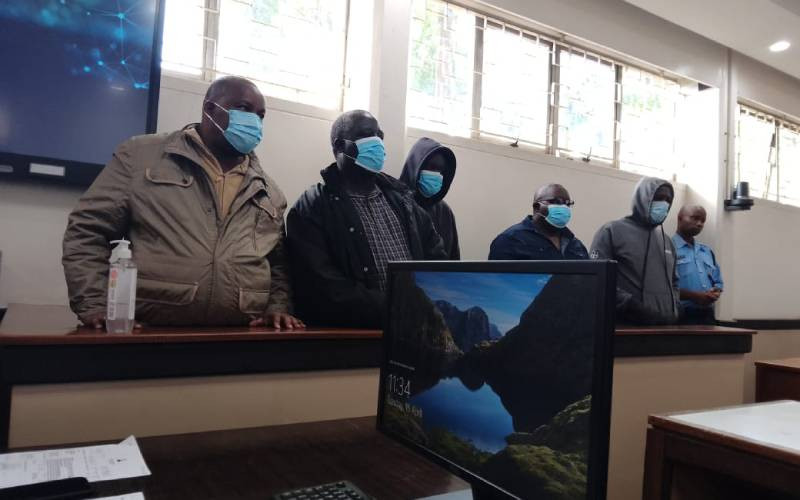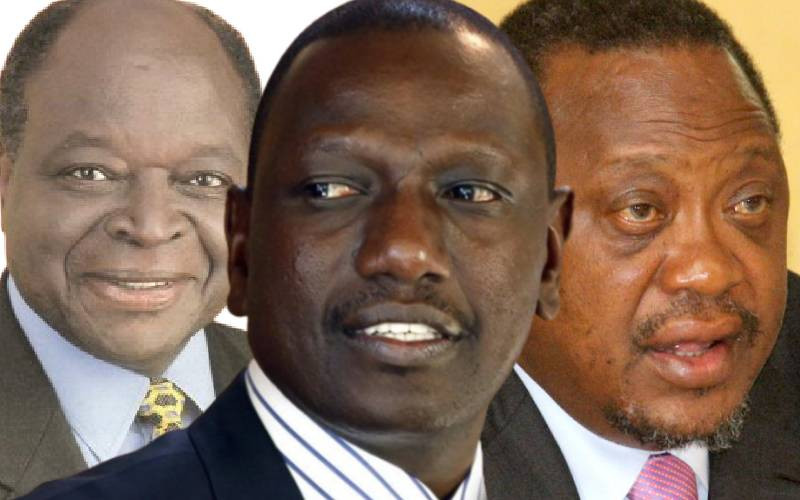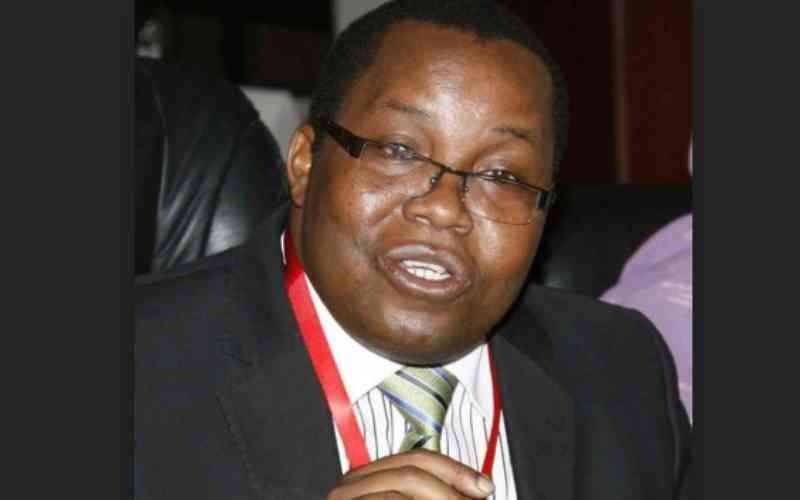Perhaps one of the most poignant moments during Pope Francis's recent visit to the country was when President Uhuru Kenyatta asked him to pray for him as he wages the war on corruption.
Kenya's future, he said, "depends on upholding the highest standards of integrity in governance, in inclusivity and in the protection of peace". There are those who will think that the President's message was at a moment of excess of candour given that he was playing host to the Pope.
Yet Mr Kenyatta's admission that corruption "misdirects resources, sows seeds of hatred and divides our people" was explicit. "It falls on me to lead it (the war on corruption)," said the President. To lead such a war, one surely needs prayers.
No doubt, corruption is eating away at our society, occasioning a loss of an estimated Sh400 billion annually and denying the youth opportunity and jobs. Sadly, it is a way of life by few in positions of influence and that is not lost to the President. There have been efforts to fight the vice before, but it has seemed to lack conviction and political goodwill. The President now has the goodwill to go after the corrupt cartels.
When US President Barack Obama visited the country in July, he decried the negative effects of corruption, urging leaders to be at the vanguard in eradicating it. Like the Pope, he also deplored the culture of exclusivity saying a game is lost if half the team is rested. Pope Francis, on the other hand, was more outright in his condemnation of the vice.
Corruption feeds off tribalism and breeds exclusivity.
"It (corruption) robs us of our security, our prosperity and our health... corruption turns us against one another, it robs us of hope, it kills," Mr Kenyatta said poignantly.
What lessons, therefore, did we learn from the Pope's message of hope, peace and reconciliation? Did the Pope's exhortation that "I urge you not to develop that taste for that sugar called corruption because you will end up being diabetic and the country diabetic too," prick our conscience? Are we likely to witness any change? Will our leaders care more for the downtrodden? Will we pay the "grave social debt towards the poor?"
He reminded us that "God gave the earth to the whole of human race for the sustenance of its members without excluding or favouring anyone." Lastly but not least, will we care more and protect the family because "the health of any society depends on the health of its families"?
The Pope was able to wrap his message in scriptural references that rung so true with our society. This was overlaid by overpowering context and an unmatched delivery mode that emphasised on the role of the individual in changing Kenya. That all Kenyans ought to take the initiative to build a better Kenya.
The Pope's reminder that ill-gotten wealth is evil and a clear path to death was masterful in its deliverance. Christianity, like all other religions abhors materialism and celebrates humility. All around us, we see the culture of materialism manifesting itself, even in the church.
Pope Francis said the first step towards national cohesion is peaceful co-existence and a united stand against tribalism and those who stand to benefit from it. It therefore falls on all citizens to wrestle the ogre of corruption that is stealing our future and most importantly to reach out to all those in need. Because even if we didn't do it, as he puts it, "the Lord never forgets about the poor".
 The Standard Group Plc is a
multi-media organization with investments in media platforms spanning newspaper
print operations, television, radio broadcasting, digital and online services. The
Standard Group is recognized as a leading multi-media house in Kenya with a key
influence in matters of national and international interest.
The Standard Group Plc is a
multi-media organization with investments in media platforms spanning newspaper
print operations, television, radio broadcasting, digital and online services. The
Standard Group is recognized as a leading multi-media house in Kenya with a key
influence in matters of national and international interest.
 The Standard Group Plc is a
multi-media organization with investments in media platforms spanning newspaper
print operations, television, radio broadcasting, digital and online services. The
Standard Group is recognized as a leading multi-media house in Kenya with a key
influence in matters of national and international interest.
The Standard Group Plc is a
multi-media organization with investments in media platforms spanning newspaper
print operations, television, radio broadcasting, digital and online services. The
Standard Group is recognized as a leading multi-media house in Kenya with a key
influence in matters of national and international interest.








